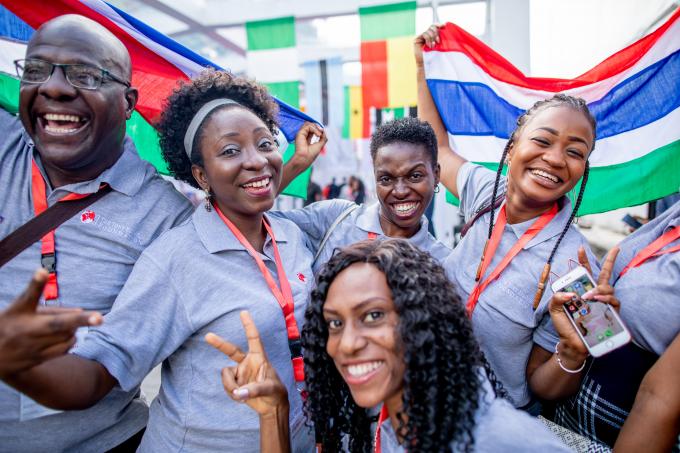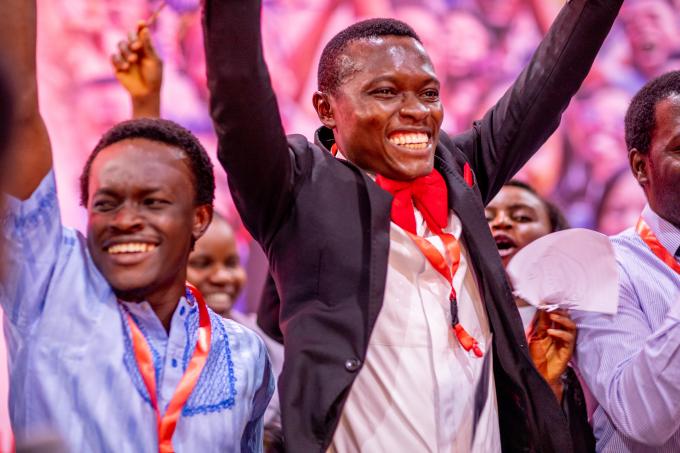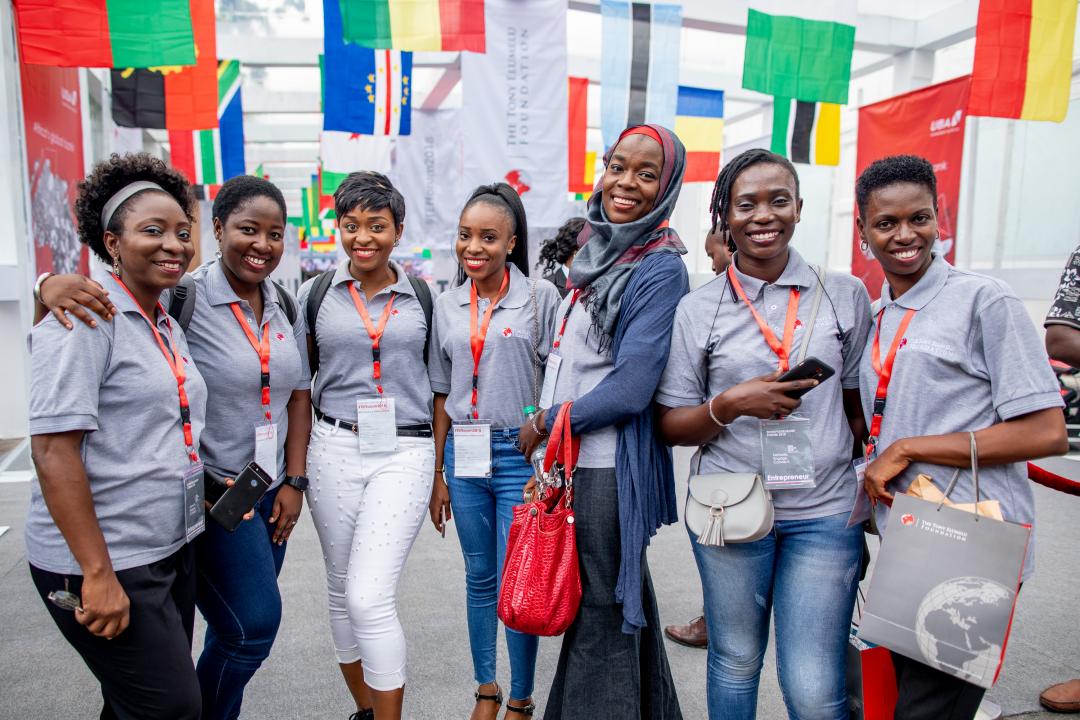Growing the SME ecosystem in Africa through training, seed funding, and strategic partnerships
Can you introduce yourself and tell us a little bit about the work of the Tony Elumelu Foundation and how it has supported entrepreneurs?
My name is Ifeyinwa Ugochukwu, and I am the CEO of the Tony Elumelu Foundation. We are focused completely on empowering entrepreneurs, as the one certain root of economic transformation across the African continent. In 2015, we launched a 100-million-dollar commitment from our founders' family wealth to identify, train, mentor, and fund 10,000 African entrepreneurs over ten years. We are in the fifth year now and by the end of this year, we will have trained and funded 8,520 entrepreneurs.
In the first year alone, we had 20,000 applications. Fast forward to this year, from January to March we had over 200,000 applications. So, selecting 1,000 per year is just scratching the surface. After the training, each entrepreneur receives $5,000 seed capital, because we believe that training and funding are two sides of the same coin.
Given this interest, we needed to open the programme up to partners who would support the seed capital for additional entrepreneurs. This year we have support from the UN Development Programme, African Development Bank, the International Committee of the Red Cross, and a number of African government partners who are funding additional entrepreneurs, in addition to the 1,000 the foundation supports every year. As a result, this year we will be funding 4,050 entrepreneurs across all 54 African countries.

The entrepreneurs are going on to do amazing things. We have one of our entrepreneurs here, Wecyclers, who was the first beneficiary of the $5,000 seed capital, who has created two hundred jobs across the African continent. Imagine what we could do if we trained and funded 10,000, or 100,000 entrepreneurs. It would change the continent for ever.
Imagine that I am an entrepreneur looking for seed funding. What do I need to bring to the table to convince you to give me funding?
Wonderful! Your business must not be more than three years old, which means that if it’s just an idea you qualify. We want to deal with start-ups and not mature companies, who should have gone on to do bigger things. You have to be an African and your business has to be in Africa, but you do not have to be living in Africa. We have applications from all over the world from Africans who will eventually do their business in Africa. You can be sector-agnostic, but we do say you should leverage technology because you have to be part of the digital economy to really grow as a business in the world of today.
To be selected, your business idea has to be feasible, scalable, and meeting a market opportunity. You have to have leadership skills and at least some level of financial literacy.
What do you think is most needed to solve the SDGs?
Exactly, what we are doing.
One of the criteria that I didn't mention is that each entrepreneur must show how many of the SDGs they are addressing with their business. We insist on one or more. We find that entrepreneurs in agriculture, for instance, are addressing multiple SDGs from poverty alleviation to zero hunger.
I feel that it is the foot soldiers on the ground that will implement the SDGs. It is not the government, sitting in their government offices. Yes, they create the enabling environment, as do development organizations. But it is the entrepreneurs in the rural areas—the people who live in those environments every day—who will implement the SDGs. And what we need to do is to create an SDG consciousness so that everything you do in your daily life, you are thinking to yourself, how am I meeting the SDGs? How are my plans and my objectives solving one or more of the Sustainable Development Goals?
With growing innovation in financing and funding mechanisms, like blended finance and impact investing, how has this created opportunities for your work?
I think that it's creating opportunity every day. Development organizations realise that it is no longer business as usual. They have to rethink their traditional approach to aid in Africa. It's no longer about giving a man a fish; you have got to teach him how to fish. It's about creating sustainable economies that will become self-reliant.
We do grant funding because we believe that a start-up business is not complex enough to handle equity. What are you buying into? We shouldn't bog them down with debt. Once they have that seed capital, everything after that should then be either debt or equity. So, we work with the likes of AFD, which has given a 10-million-euro risk guarantee scheme for our entrepreneurs with second stage funding. I think that blended finance is great, but you have to know when to apply what.

We are seeing that there are a lot of companies that have reached a certain level of growth but are in the missing middle heading towards the valley of death. How can we better serve these companies?
Yes, there’s the valley of death for companies who need one million euros and under. But you know, there is also a no man's land for entrepreneurs who need under $10,000 just to start their business, prove their concept, and turn their idea into a reality. I believe that every part of the pyramid needs to be touched by development organizations, private sector, and governments, through blended finance and creating awareness. If we do not address everyone in the pyramid, from the bottom, to the middle, to the top, we will keep recycling the same entrepreneurs. The same entrepreneurs will keep getting the finances from the venture capitalists. We need to bring a new pool of entrepreneurs into the gate.
Do you think that in developing countries we really need this differentiation between ordinary businesses and inclusive business or social enterprises?
I think the differentiation should be in terms of creating a consciousness. You should aim to do good while doing well. I think that is the world we are living in. We should not do business with total disregard for the environment or each other. This is really what social enterprise is all about. I think this is something that should be taught in schools. If not, we will not have a world to live in fifty years from now.
Can you give our readers an overview of finance solutions that are available for entrepreneurs in Africa?
There is no better time to be an entrepreneur. A lot of governments, private sector leaders, and development organizations are focused on empowering and supporting entrepreneurs. You only need to open your eyes to find the opportunity. You also have to know where you are and what you need. Are you at the point where you can take equity? Are you looking for debt? The financial institutions also have to have an appetite for SMEs and they should not apply the same rules that they apply to the large enterprises, like the need for collateral. I think that can be mitigated by risk guarantee schemes, which a lot of the development organizations are offering. There are a lot of financial solutions on the continent. And entrepreneurs should educate themselves and find out what is available for them.
As you say, there are so many options to get funding… how should entrepreneurs navigate through this jungle of options?
The only rule I'll say is never give up. Those who have succeeded had tons of failure. You don't hear about the failures; you only hear about the successes. There are opportunities out there. There are funding solutions out there. Keep trying until you get what you need. Resilience is the key to success.

Great, is there anything else you’d like to add?
Yes, I wanted to add that we have a digital platform—TEF Connect—that is bringing together the entire entrepreneurship ecosystem in Africa. Entrepreneurs can go to get all the information they need on what's available, including free business tools, templates, resources, trainings, and of course, access to investors globally.
Thank you.
